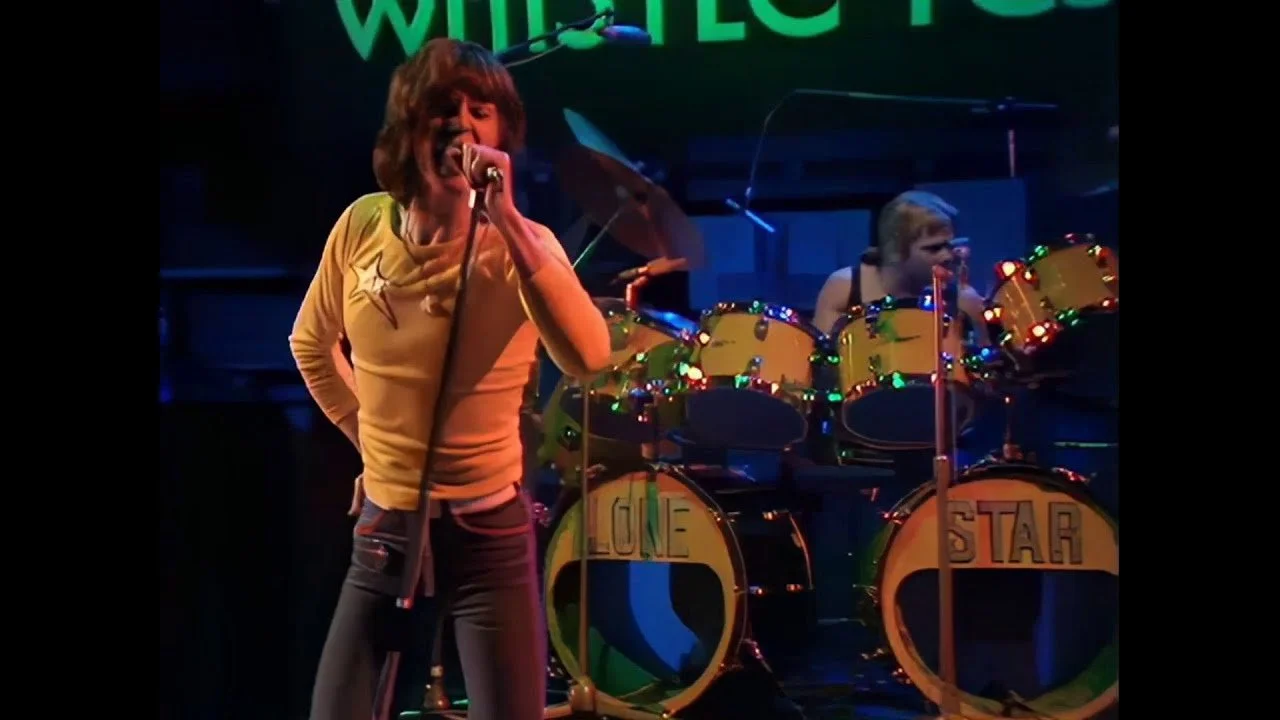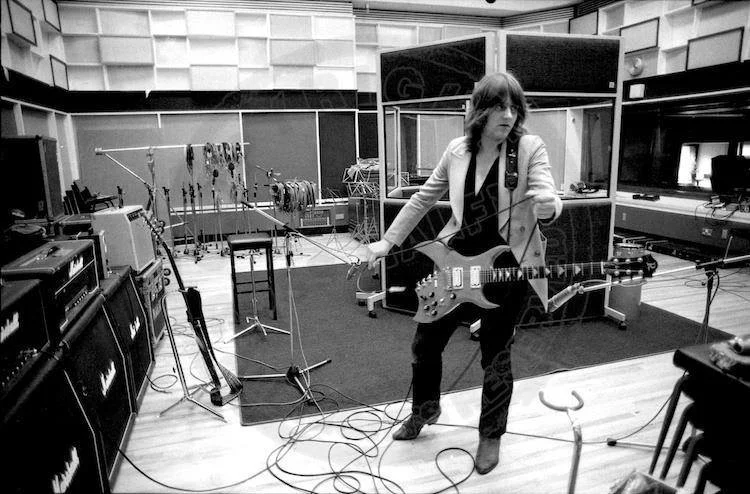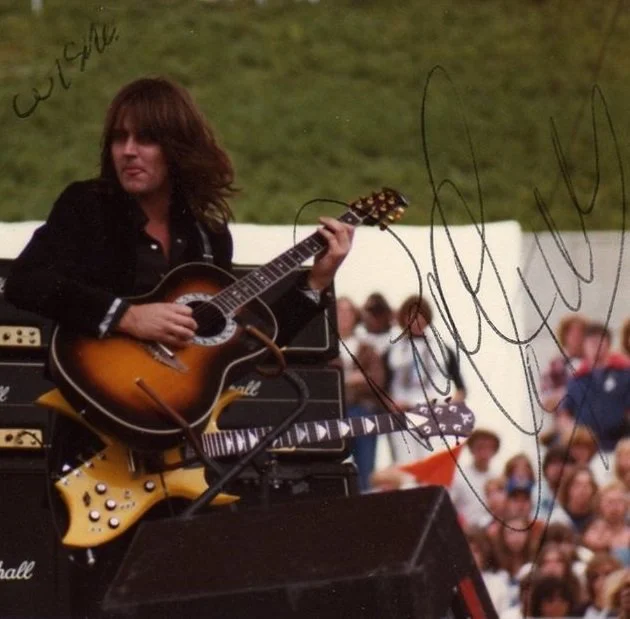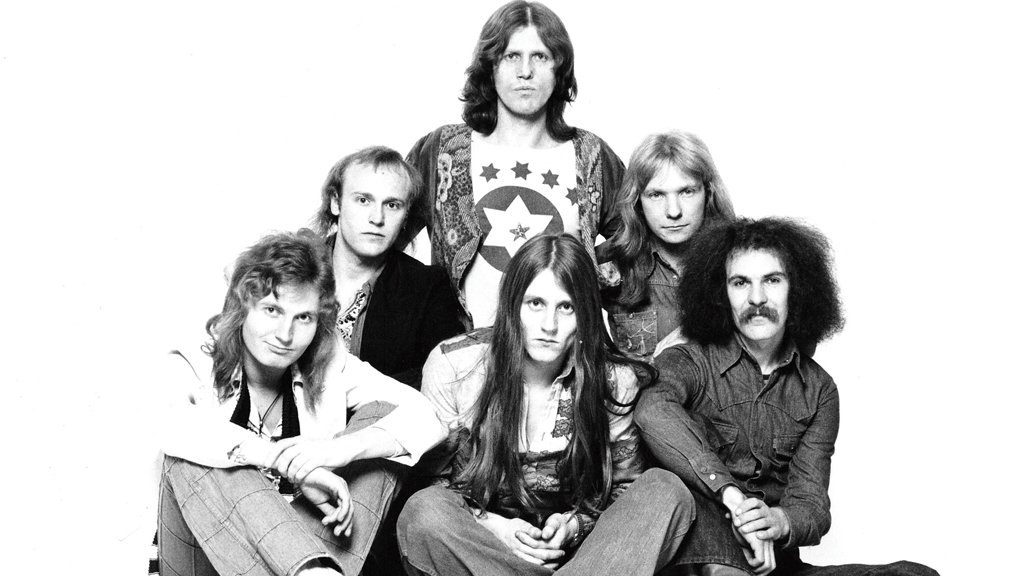Images may be subject to copyright
On this day, 17 May 1977, Welsh rock and heavy metal music band Lone Star played Cardiff’s Top Rank.
Formed in Cardiff in 1975, they released two albums on CBS Records before splitting up in 1978.
An embryonic line-up consisted of former Iona members Kenny Driscoll and Tony Smith, former Quest bassist Ray Jones, and drummer Jim Mathews.
The band took on the Lone Star moniker in early 1975 with bassist Pete Hurley and drummer Dixie Lee replacing Jones and Mathews, respectively, and the addition of Canadian keyboardist Rick Worsnop and guitarist Paul 'Tonka' Chapman (a cousin of famed Welsh rocker Dave Edmunds), the latter whose credits included the bands Universe, Skid Row (where he had replaced Gary Moore), Kimla Taz, and most notably, UFO, in a short-lived 1974 dual guitar configuration alongside Michael Schenker.
They raised £300 and recorded a five-song demo tape (The Acorn Sessions) at a studio near Oxford, with four of the five songs appearing in re-recorded form on their first two albums.
The demo brought interest from manager Steve Wood, and after a bidding war, they signed a worldwide deal with CBS Records (which Driscoll would later describe as 'the worst record deal ever')."
The band recorded a studio session for John Peel's BBC Radio 1 show in early 1976, and recorded their self-titled debut album in August 1976 at Sweet Silence studios in Copenhagen, with Roy Thomas Baker producing.
Driscoll had suffered a broken collarbone in a car crash (that left his girlfriend paralysed from the neck down) shortly before recording the album, and claimed to have recorded all the vocals for the album in three hours while drunk, and was disappointed with the results.
The album charted at No. 47 on the UK Albums Chart, and was supported by a UK tour with label mate Ted Nugent. A second Peel session was recorded in April 1976 and broadcast around the time of the first album's release that August.
The band's profile would get a further boost with a BBC Radio 1 In Concert broadcast, recorded at the Paris Theatre in London on 23 September 1976 while on tour as openers for Mott.
After friction between Driscoll and other band members, he left in 1977, and was replaced by 20-year-old John Sloman (ex-Trapper), with Abe Hoch taking over as manager from Wood.
The band's third BBC studio session, with Sloman now on vocals, was recorded in February 1977, and broadcast in July of that year on Alan Freeman's Saturday Show. This was an experimental quadraphonic broadcast trialling the BBC's Matrix H system.
The band's second album, Firing on All Six, produced by Gary Lyons and released in August 1977, bettered its predecessor and reached No. 36 on the UK Albums Chart. That same month, the band undertook their most high-profile gig yet with an appearance at the Reading Festival on 26 August, followed by a live broadcast on the BBC's Sight & Sound programme on 29 September, recorded at Queen Mary College in East London whilst sharing a bill with Canadian guitarist Pat Travers.
Both the BBC In Concert and Sight & Sound broadcasts were released in 1994 as the BBC Radio One Live In Concert CD.
Lone Star were on hiatus for a period when Chapman was called upon by UFO to fill in for the absent Michael Schenker for part of their US tour with Rush.
Upon his return the band began to prepare and demo material for a proposed third album but already on shaky ground and beset by management problems and tensions caused by Smith and Lee's interest in Scientology, Lone Star splintered in late 1978, CBS having pulled the plug due in part to the rapidly changing musical climate, with the rise of punk rock leaving bands like Lone Star seeming old fashioned










